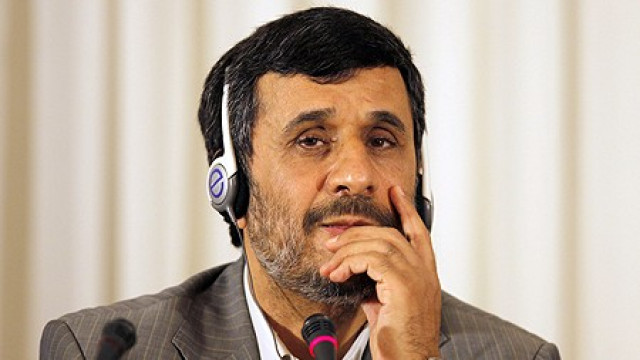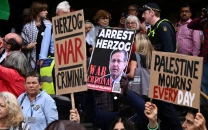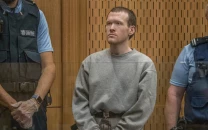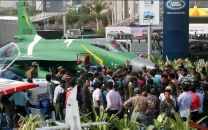UN to slap fresh sanctions on Iran
For the fourth time in as many years, the UN Security Council readied fresh sanctions against Iran.

UN to slap fresh sanctions on Iran
Adoption of a US-drafted sanctions resolution, co-sponsored by Britain and France with the backing of Russia and China, was a foregone conclusion despite efforts by Brazil and Turkey to head off the measures and promote a nuclear fuel swap deal they reached with Tehran last month.
Western powers say they were confident that they have more than the nine votes needed to adopt the text at a meeting scheduled to begin at 10:00 am (1400 GMT). Only Brazil, Turkey and Lebanon -- three non-permanent council members -- had openly voiced opposition to the text and it remains unclear whether they will vote against or abstain.
It will be the fourth set of United Nations sanctions imposed on Iran since December 2006 -- the last round was adopted on March 3, 2008 -- as the international community struggles in vain to curb the Islamic republic's nuclear ambitions.
Tehran maintained its uranium enrichment program was for peaceful civilian purposes, while western nations had led charges that it is covering up efforts to develop nuclear weapons. Iranian President Mahmoud Ahmadinejad angrily warned that negotiations with six major powers -- Britain, China, France, Russia, the United States and Germany -- on his country's nuclear program would be terminated if the new sanctions were imposed.
"I have said that the US government and its allies are mistaken if they think they can brandish the stick of resolution and then sit down to talk with us, such a thing will not happen," Ahmadinejad said. A Turkish diplomat told AFP on condition of anonymity that Ankara was trying to persuade Iran not to abandon talks if sanctions were imposed.
The new resolution would expand an arms embargo, target Iran's banking sector and ban it from sensitive overseas activities like uranium mining. It would also authorize states to conduct high-sea inspections of vessels believed to be ferrying banned items from or to Iran and 40 entities to a list of people and groups subject to travel restrictions and financial sanctions.
Among those subject to the measures would be Javad Rahiqi, head of the Atomic Energy Organization of Iran's Isfahan nuclear technology center. According to the draft text, 22 of the entities are linked to Iran's nuclear and ballistic missile programs, 15 are "owned, controlled, or acting on behalf of the Islamic Revolutionary Guard Corps" and three are controlled by the Islamic Republic of Iran Shipping Lines.
US Secretary of State Hillary Clinton said the proposed sanctions "are the most significant Iran has ever faced." But Russian Prime Minister Vladimir Putin, whose country has decided to back the UN moves despite its economic ties with Tehran, pressed for tempered sanctions.
"Our point of view is that these decisions should not be excessive and should not put the Iranian people in a complicated position which would put up barriers on the path to peaceful nuclear energy," Putin was quoted by Russia's ITAR-TASS news agency as saying. And US Ambassador to the United Nations Susan Rice said Washington still hoped to "persuade Iran to halt its nuclear program and negotiate constructively and in earnest with the international community."
"We remain committed to the dual-track approach" of pressure through sanctions coupled with negotiations, she added. Ahmadinejad, however, urged Western powers not to dismiss a nuclear fuel swap deal brokered by Turkey and Brazil last month that he described as an opportunity that should be "put to good use."
"Opportunities will not be repeated," he warned on the sidelines of a regional meeting in Istanbul. Under the plan, Iran agreed to ship 1,200 kilograms (2,640 pounds) of its low-enriched uranium to Turkey in return for high-enriched uranium fuel for a Tehran research reactor that would be supplied later by Russia and France.
But the six world powers which have been trying to clip Iran's nuclear ambitions gave the deal a cool reception. Amid the deadlock with Western governments over other nuclear fuel swap proposals drafted by the UN nuclear watchdog, Ahmadinejad ordered the country's atomic energy agency to start enriching uranium to 20 percent, bringing Tehran closer to the weapons grade level of 90 percent plus.
Iran had previously enriched uranium to only the five percent level required for nuclear power stations.



















COMMENTS
Comments are moderated and generally will be posted if they are on-topic and not abusive.
For more information, please see our Comments FAQ